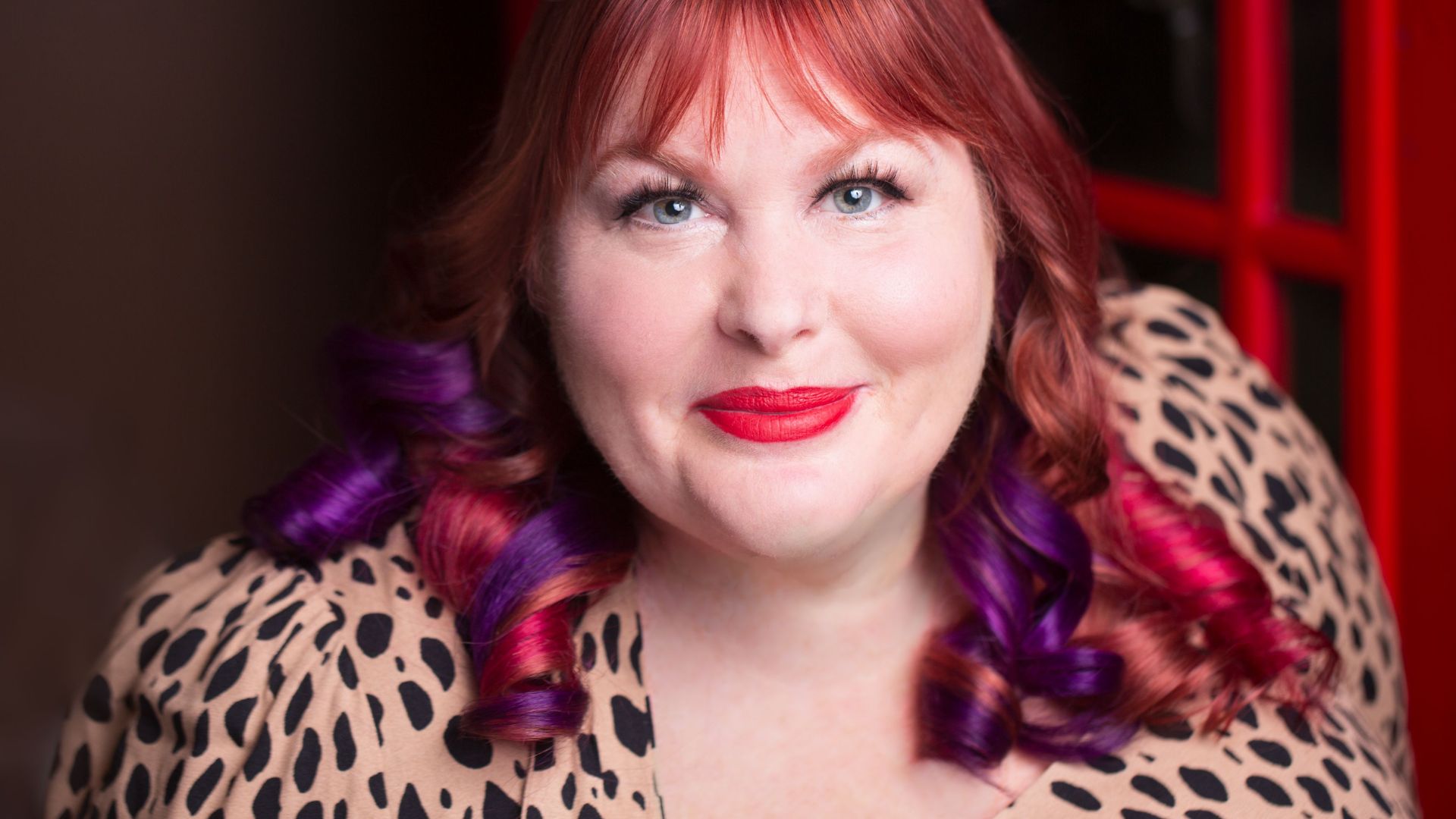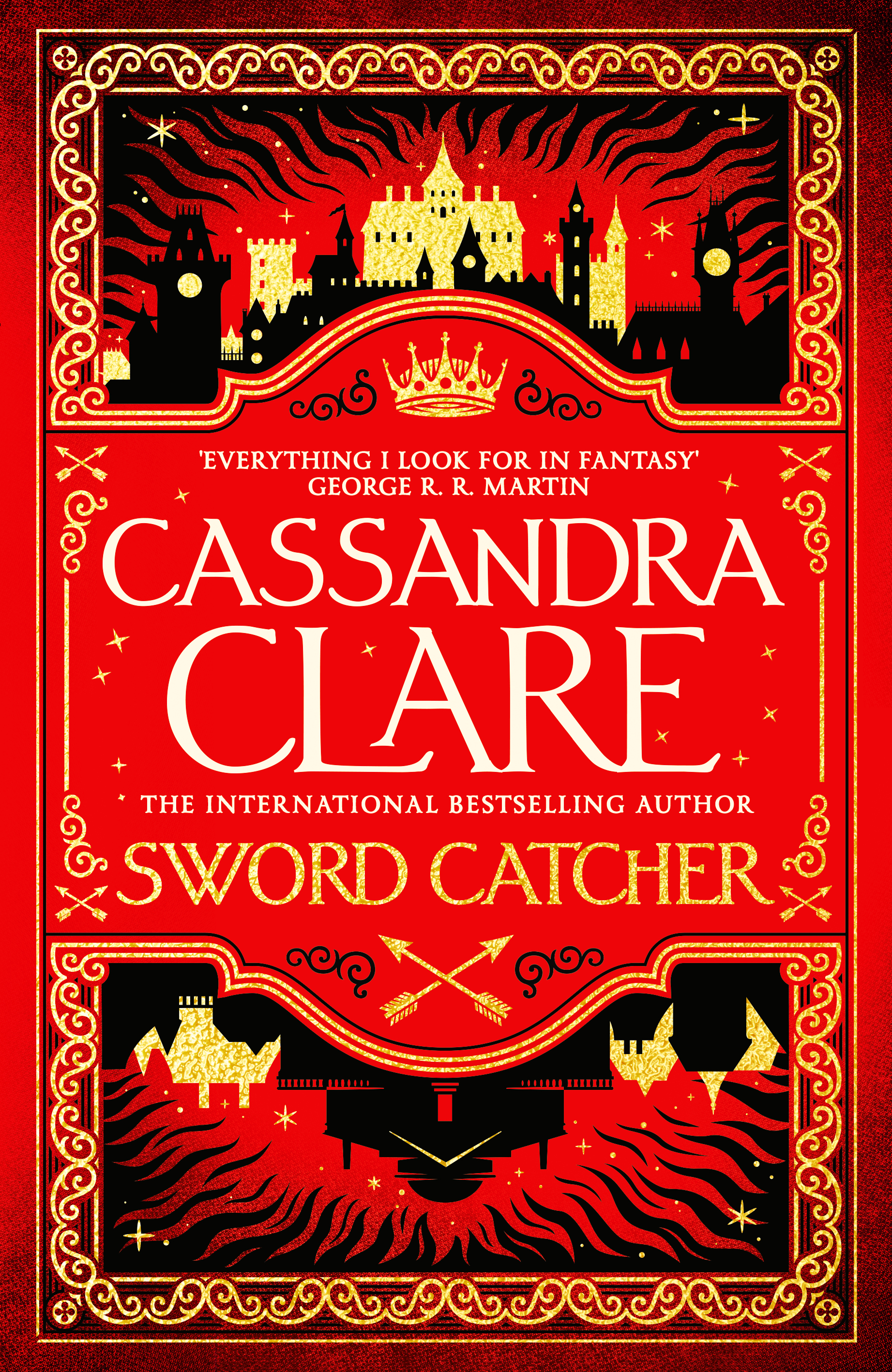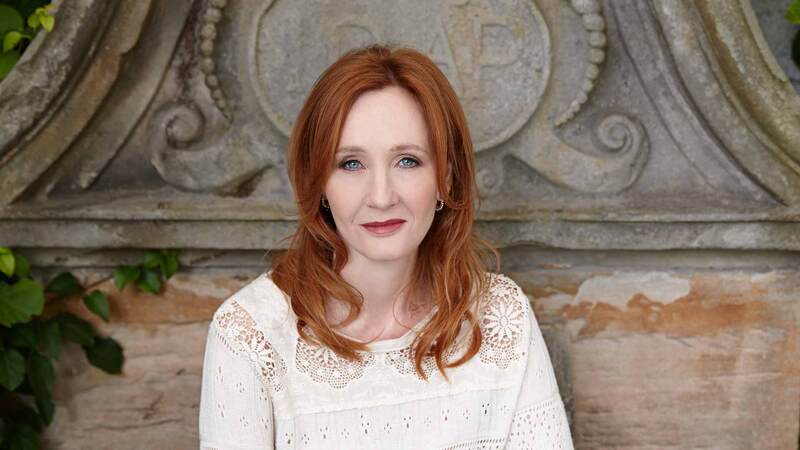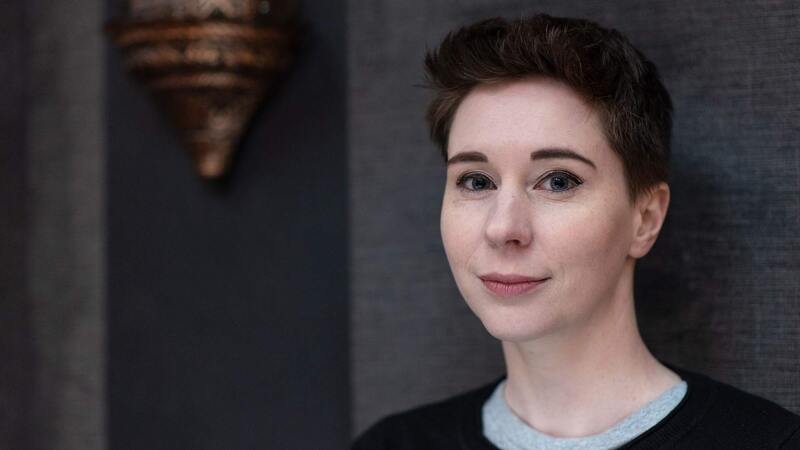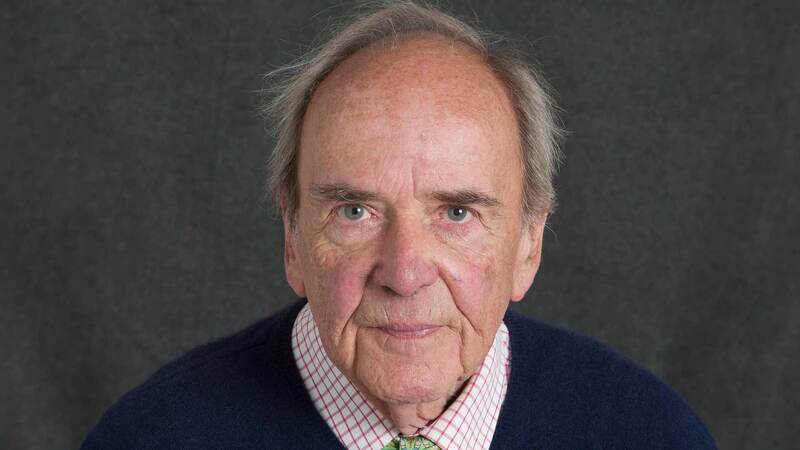You are viewing your 1 free article this month. Login to read more articles.
Cassandra Clare discusses her first adult fantasy novel, worldbuilding and political intrigue
The future looks bright for Cassandra Clare as the YA author makes her adult fantasy début.
I first became aware of Cassandra Clare’s fantasy oeuvre 10 years ago after devouring Clockwork Angel, the first instalment in her YA Infernal Devices trilogy. She has since written six more series, five of which are set in her renowned Shadowhunter universe. I recall this when we talk over Zoom about her adult fantasy début, Sword Catcher, the culmination of seven years of thought. Clare, usually based in the US, is in rainy Somerset on holiday with family, friends and fellow writers when we speak.
Sword Catcher, a deliciously vivid homage to high fantasy, where machinations and political intrigue abound, feels like a nostalgic return to Robin Hobb’s Farseer trilogy with a distinctly modern edge. It is not only Clare’s first adult book, but the first time she has constructed an entirely new world, and here the worldbuilding is intricate and utterly compelling. Clare leaves no stone unturned, raising from the pages the towering turrets, history and people of Castellane, a medieval-esque city of extreme hedonism and poverty.
The city was inspired from a trip Clare took with her husband which “in an odd way” followed parts of the Silk Road and during which Clare read Roger Crowley’s City of Fortune, an examination of Venice’s nautical and merchant power over a 500-year period. “The idea came to me to write a fantasy novel that was set in an imaginary city that sat at the confluence of both the maritime trade routes and the overland trade routes, that derived all of its power basically from trade.”
Politics is a tool, power is a tool and magic is a tool. You decide how significant these things are going to be in your world
Castellane is the beating heart of trade in the region, commerce is its lifeblood and it is controlled by the aristocracy who charter certain goods. In homage to the “super diverse” nature of Ancient Rome, Castellane is home to numerous peoples and cultures. “I didn’t want to do something monocultural,” explains Clare who, having previously set her novels in recognisable settings such as London, New York and Los Angeles, describes creating the world as “both refreshing and difficult”. She continued: “You have to remember the whole world. It has to make sense. It has to feel lived in by people and those people have to have relationships that seem realistic. They have to have jobs that make sense to you and the economy has to work in a way that makes sense to you.”
Castellane is ruled by a monarchy, the sole heir of which is Prince Conor, a naïve yet compassionate individual who is protected by Kel, his body double, who must mimic Conor in every aspect from his mannerisms, speech and appearance, to stand in his stead in times of danger and put his life before the prince’s. When someone stabs Kel, after believing him to be Conor, the rhythmic tedium of court life is disrupted, revealing dark secrets and the aristocracy’s rotten core. Lin, a gifted Ashkar physician, is brought to heal Kel and, in doing so, quickly becomes swept into webs of deceit. Soon both Lin and Kel become bound to the overseer of crime in Castellane—the Ragpicker King. As events reach a crescendo in a thrilling finale, both Kel and Lin must prove how far they will go to save those they love.
The history and culture of the Ashkar is “not the history of the Jewish people, but it is drawn from Jewish mythologies”. It meant “a lot” to Clare, who is Jewish, to see this represented in a book where the Ashkar language contains some Hebrew words such assuch as in Sefer Refuot, a medical text, so “it would feel resonant for my readers who are Jewish. I wanted them to be able to read words like ‘sanhedrin’ and the ‘shomrim’, who watch the walls, and recognise those words and be like: ‘Oh right, I see that, I feel that’.” The experience of the Ashkar is “that of a diasporic people”, they are treated differently in varying regions of the world, and “one of the experiences of the Jews has always been moving from place to place as those places become more friendly or less friendly”. As such, the Ashkar live scattered across the continent in walled communities within cities to protect their people. Clare pays homage to this need for protection with the “shomrim”, referring to the guards who man the walls. The term also nods to “watches of the night”, a phrase dating back to the “Roman Jews who set up a system of watching their community all through the night to keep them safe”.
I was interested in a more modern approach where we talk a lot about cities, about trade, about power, about machinations, treachery, betrayal
Significantly, in the vein of George R R Martin’s Game of Thrones series, magic no longer exists as an immensely powerful force in Clare’s world. The Ashkar, including Lin, still possess the ability to use magic, known as “gematry”, but it is “low magic” primarily performed using amulets and other objects to help with small tasks and healing. It was an intentional decision to craft a world “where magic was mostly gone” to explore what would happen in this power vacuum. “We’re developing a more flexible definition of fantasy and the magic is less numinous,” says Clare. “Politics is a tool, power is a tool and magic is a tool. You decide how significant these things are going to be in your world.” More of a practicality than an epic miasmic force, the treatment of magic in Sword Catcher is an example of the “evolution of how the fantasy genre works”, explains Clare. “I was interested in a more modern approach where we talk a lot about cities, about trade, about power, about machinations, treachery, betrayal. I want the characters to drive the story not the magic.”
Branching out
As Clare’s first adult novel, Sword Catcher asks different questions of its characters than her YA books. Rather than being “rooted in teenage experiences” when characters are still trying to discover who they are, Sword Catcher poses questions of responsibility and considers at “what place in life are these characters”. It is not a question of gratuitousness—in violence or sex—but a psychological approach which evaluates how the characters will respond to their roles, “transactions of power” and the authoritative systems in Castellane. “Fantasy is so much metaphor” and the metaphor for Sword Catcher lies not in the magic, but as Clare intended, in the characters: “For Kel, here’s the metaphor for someone who’s never been given the space to find out who he is. For Lin, her struggle to be a doctor resonates so strongly with me, and I think, hopefully, will with many women in terms of being told that there are things that we can’t do.”
For the legion of Shadowhunter readers though, Clare’s dive into adult fantasy does not mark the end of her much-loved YA world with the next series of Shadowhunter books, the Wicked Powers, still to be released. Sword Catcher’s sequel, The Ragpicker King, is already well under way and tentatively due in March 2025. Reflecting on the change of pace, Clare said: “I love Shadowhunters and I like to live in that world too, but it’s also good for me to go and spend some time in another world and come back refreshed.”





